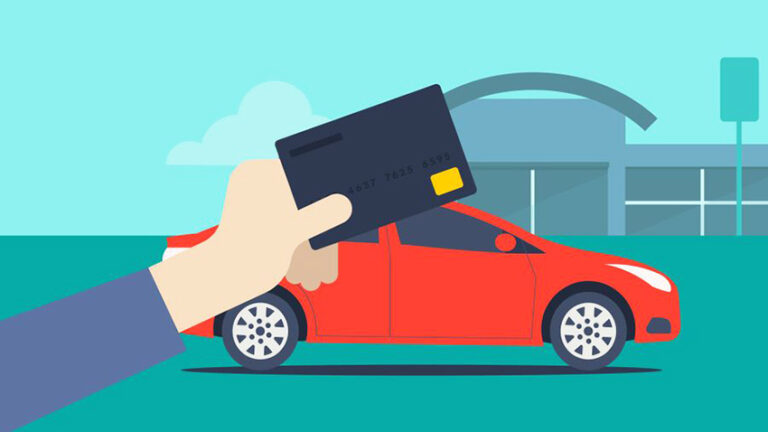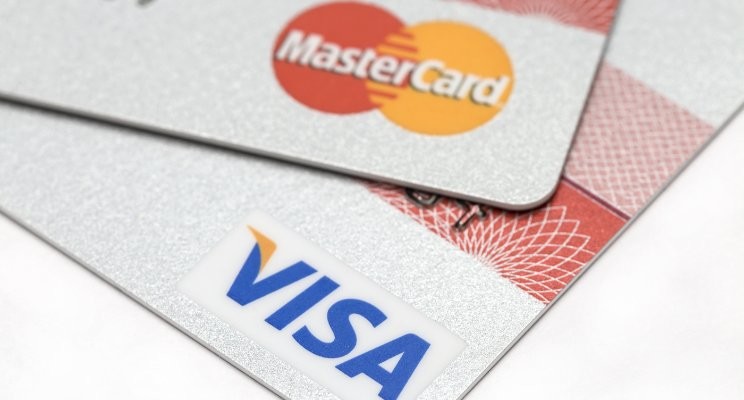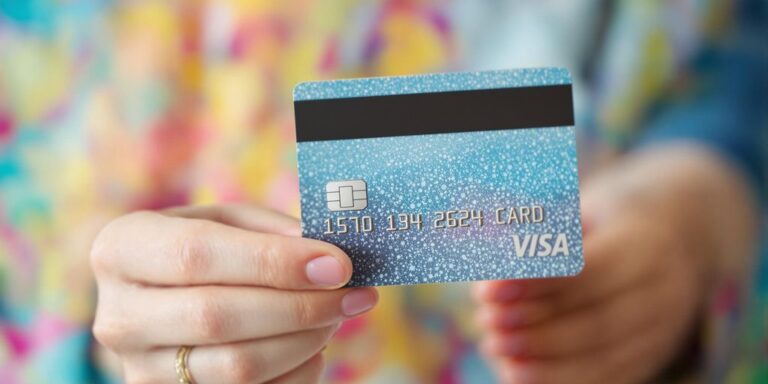Choosing the Best Credit Card Bill Consolidation Loan
Handling credit card debt can feel overwhelming, especially when those high interest rates start stacking up. That’s where a credit card bill consolidation loan might come in handy. It’s like bundling all your debt into one neat package, often with a lower interest rate, which can make it easier to manage. This guide will walk you through what these loans are all about, how to pick the right one, and other options you might consider. Let’s dive into the world of credit card bill consolidation loans and see if they’re the right fit for you.
Key Takeaways
- Credit card bill consolidation loans combine multiple card debts into one loan, often with a lower interest rate.
- Assess your financial situation carefully before choosing a consolidation loan to ensure it fits your needs.
- Compare different loan options like secured vs. unsecured and fixed vs. variable rates to find the best fit.
- Consider the impact on your credit score, both short-term and long-term, before consolidating your debts.
- Explore alternatives like balance transfer cards or debt management plans if a consolidation loan isn’t suitable.
Understanding Credit Card Bill Consolidation Loans

What is a Credit Card Bill Consolidation Loan?
A credit card bill consolidation loan is a financial tool that allows us to combine multiple credit card debts into a single loan with one monthly payment. This type of loan typically offers a lower interest rate than individual credit cards, making it a popular choice for those of us looking to manage our debt more effectively. By consolidating our credit card debt into one loan, we can simplify our financial obligations and potentially save money on interest over time.
How Does It Work?

When we opt for a credit card debt consolidation loan, we first apply for a loan with a bank, credit union, or online lender. Once approved, the lender provides us with the funds to pay off our existing credit card balances. This leaves us with just one monthly payment to the lender instead of multiple payments to different credit card companies. The loan terms, such as interest rates and repayment period, are fixed, giving us a clear timeline for becoming debt-free. This structured approach helps us stay on track and avoid the pitfalls of high-interest credit card debt.
Benefits of Consolidation Loans

Choosing the best way to consolidate credit card debt can offer several advantages:
- Lower Interest Rates: By securing a lower interest rate than what we’re currently paying on our credit cards, we can reduce the overall cost of our debt.
- Simplified Payments: Managing a single loan payment each month is much easier than juggling multiple credit card payments.
- Faster Debt Payoff: With lower interest rates, more of our payment goes toward the principal balance, helping us pay off debt quicker.
Consolidating credit card debt into a loan can be a smart move if done correctly. It offers a path to financial freedom by reducing interest costs and simplifying our payment schedule. However, it’s crucial to understand the terms and ensure it aligns with our financial goals before proceeding.
When considering a loan for credit card debt, it’s essential to evaluate our options and choose the best company to consolidate credit card debt. This decision can significantly impact our financial health and help us achieve our goal of becoming debt-free.
Evaluating Your Financial Situation

Assessing Your Debt
First things first, we need to get a grip on how much debt we’re dealing with. Gather all your credit card statements, loan documents, and any other debts you owe. Make a list of each debt, including the total amount owed, the minimum monthly payment, and the interest rate. This gives us a clear picture of what we’re up against. Once you see everything laid out, it might feel a bit overwhelming, but don’t worry—this is the first step toward taking control.
Understanding Your Credit Score
Next up, let’s talk about your credit score. It’s a three-digit number that can seriously affect your loan options. You can get a free credit report from the major credit bureaus once a year. Check it for errors and see where you stand. If your score is lower than you’d like, don’t panic. There are ways to improve it over time, like paying bills on time and reducing your credit card balances. A better credit score could mean better loan terms.
Setting Financial Goals
Now that we know what we’re dealing with, it’s time to set some financial goals. Think about what you want to achieve with a consolidation loan. Is it to lower your monthly payments, reduce your interest rates, or just simplify your life by having one payment? Be realistic about what you can afford and how long it will take to pay off your debt. Setting clear goals will help keep us on track and motivated.
Taking a step back and evaluating our financial situation isn’t just about numbers. It’s about understanding where we are and where we want to be. It’s the foundation for making informed decisions about debt consolidation and ultimately achieving financial peace of mind.
Comparing Different Loan Options
Secured vs. Unsecured Loans
When we’re looking at debt consolidation, one of the first things to consider is whether to go with a secured or unsecured loan. Secured loans require collateral—something like your house or car. This can often mean a lower interest rate because the lender has something to fall back on if things go south. But if you can’t make the payments, you risk losing that asset. On the flip side, unsecured loans don’t need collateral, but they usually come with higher rates. It’s a bit of a trade-off, and it really depends on what you’re comfortable with and what you have available.
Fixed vs. Variable Interest Rates
Interest rates can be tricky. With a fixed rate, you’re locking in the same rate for the life of the loan. This means your monthly payments stay the same, which is great for budgeting. But if rates drop, you’re stuck with the higher rate. Variable rates, however, can change over time. They might start lower than a fixed rate, but they can rise, making your payments unpredictable. It’s all about how much risk we’re willing to take.
Short-term vs. Long-term Loans
The length of the loan is another biggie. Short-term loans might have higher monthly payments, but you’ll pay less interest overall and get out of debt quicker. Long-term loans spread out the payments, making them smaller, but you’ll end up paying more in interest over time. It’s crucial to weigh how much we can afford monthly against how much we want to pay in total.
Choosing the right loan option is like piecing together a puzzle. Each piece—whether it’s the type of loan, the interest rate, or the term—needs to fit just right to make the whole picture work for our financial situation.
In the end, it’s about finding that sweet spot where the loan terms align with our financial goals and comfort level. Debt consolidation loans can be a helpful tool, but only if they match our needs and circumstances.
| Feature | Secured Loan | Unsecured Loan |
|---|---|---|
| Collateral Needed | Yes (e.g., house, car) | No |
| Interest Rates | Lower | Higher |
| Risk of Asset Loss | Yes | No |
Finding the Right Lender
When we’re on the hunt for a credit card bill consolidation loan, finding the right lender is crucial. We want to make sure our choice fits our financial needs and goals.
Banks vs. Credit Unions
Let’s start with the big players: banks and credit unions. Banks often have a wide range of loan products and can offer competitive rates, especially if we have a good relationship with them. However, their terms might be stricter. Credit unions, on the other hand, are member-focused and might provide more personalized service. They often have lower fees and interest rates, but membership is usually required.
Online Lenders
In today’s digital age, online lenders have become a popular choice. They offer convenience and speed, often allowing us to complete the entire process from our couch. These lenders can provide quick funding, often within a day or two, and their requirements might be more flexible. However, it’s important to thoroughly research their reputation and terms.
Evaluating Lender Reputation
Before we jump in, we should always evaluate a lender’s reputation. Reading reviews, checking their ratings with the Better Business Bureau, and understanding their customer service track record are vital steps. We should also look into any hidden fees or terms that might not be immediately obvious.
Choosing the right lender isn’t just about the lowest interest rate—it’s about finding a balance between cost, convenience, and trust.
By considering these factors, we can confidently select a lender that aligns with our financial situation and helps us achieve our debt consolidation goals. For a comprehensive review, check out our analysis of top lenders for debt consolidation loans.
| Feature | Banks | Credit Unions | Online Lenders |
|---|---|---|---|
| Interest Rates | Competitive | Lower | Variable |
| Application Process | In-person or online | In-person or online | Fully online |
| Approval Speed | Slow | Moderate | Fast |
Application Process for Consolidation Loans

Applying for a debt consolidation loan might feel like a big step, but breaking it down can make it simpler. Let’s walk through the process together.
Pre-qualification Steps
Before you dive into the application, it’s wise to pre-qualify. This step lets us see potential loan terms without dinging our credit score. Many online lenders offer this option, and it’s a good way to compare rates and terms. Pre-qualifying can save us from surprises later on.
Required Documentation
When it’s time to officially apply for a debt consolidation loan, have your paperwork ready. Lenders typically ask for:
- Proof of identity (like a driver’s license or passport)
- Employment verification (such as pay stubs or a letter from your employer)
- Income proof (bank statements or tax returns)
Gathering these documents ahead of time can speed up the process and show the lender we’re serious.
Approval Timeline
Once we submit our application, the waiting game begins. Approval times vary, but many lenders give us a decision within a few days. If approved, some lenders offer quick funding, sometimes as soon as the same day.
Remember, funding speed can depend on the lender and our readiness with documentation. Being prepared can make all the difference.
To apply for a debt consolidation loan, start by checking your credit score and listing your debts and payments. Next, pre-qualify and compare various loan options before applying for the chosen debt consolidation loan.
Taking these steps carefully can help us secure a loan that aligns with our financial goals, making debt consolidation a bit less daunting.
Interest Rates and Fees

When considering a credit card bill consolidation loan, understanding the interest rates and fees involved is essential. Let’s break down the key components:
Understanding APR
The Annual Percentage Rate, or APR, is more than just the interest rate on your loan. It includes any additional fees that can affect the annual cost of borrowing. This means that when you’re comparing loans, the APR gives you a more accurate picture of what you’ll actually pay over time. Keep in mind, lenders often advertise low rates, but these might not include all the fees.
Common Fees to Expect
When you’re consolidating your credit card debt, there are several fees you might encounter:
- Origination Fee: This is a one-time fee that a lender may charge for processing your loan. It typically ranges from 1% to 10% of the loan amount. For instance, if you take out a $10,000 loan with a 5% origination fee, you’ll receive $9,500.
- Late Payment Fee: If you miss a payment, expect a penalty. These fees can add up, so it’s crucial to make your payments on time.
- Prepayment Penalty: Some loans charge a fee if you pay off your loan early. It’s important to check if your loan includes this fee, as it can impact your decision to pay off the debt faster.
Negotiating Better Terms
We often think that the terms offered by lenders are set in stone, but there’s usually room for negotiation. Here are a few tips to potentially get better terms:
- Improve Your Credit Score: A higher credit score can give you more leverage in negotiations.
- Shop Around: Don’t settle for the first offer. Compare different lenders to see who can provide the best deal.
- Ask for Discounts: Some lenders offer discounts for setting up automatic payments or for having a checking account with them.
It’s wise to read all the fine print and fully understand the terms of any loan before signing. This can save you from unexpected costs and help you manage your debt more effectively.
In summary, when looking at debt consolidation loans, be sure to factor in all potential costs. Understanding these elements can help us make informed decisions and find a loan that truly fits our financial needs.
Impact on Credit Score
Short-term Effects
When we take out a credit card bill consolidation loan, our credit score might take a bit of a hit initially. This happens because the lender performs a hard inquiry on our credit report, which can temporarily drop our score by a few points. It’s like when someone peeks into your financial history, and it leaves a small mark. But don’t worry, this dip is usually short-lived. Once we start making consistent payments on the new loan, our score can begin to recover.
Remember, keeping up with payments is key. It not only helps to rebuild our score but also establishes a good payment history.
Long-term Benefits
Over the long haul, a consolidation loan can actually help to boost our credit score. By rolling multiple credit card balances into a single loan, we reduce our credit utilization ratio—a major factor in credit scoring. Lowering this ratio can improve our score significantly over time. Plus, having just one payment to focus on makes it easier to manage, reducing the risk of missing a payment.
Here’s a quick look at how credit scores can affect loan interest rates:
| Credit Score Range | Average Loan Interest Rate |
|---|---|
| 720-850 | 10.73%-12.50% |
| 690-719 | 13.50%-15.50% |
| 630-689 | 17.80%-19.90% |
| 300-629 | 28.50%-32.00% |
Managing Credit Post-Consolidation
Once we’ve consolidated our debt, it’s important to manage our credit wisely to maintain or improve our score. Here are some tips:
- Avoid new debt: Try not to rack up new credit card balances; this can quickly undo the benefits of consolidation.
- Stick to a budget: Keep track of our spending to ensure we’re living within our means.
- Monitor credit reports: Regularly check our credit reports for errors or signs of identity theft.
By following these steps, we can ensure that our credit score continues to climb and that we’re on a solid path to financial health. Debt consolidation can reduce monthly payments but may temporarily lower your credit score. However, if handled well, it can be a stepping stone to a better financial future.
Alternatives to Consolidation Loans

When it comes to managing credit card debt, we often think of consolidation loans as the go-to solution. However, there are several other loan options for debt consolidation that might suit your needs better. Let’s explore some alternatives.
| Option | Benefits | Challenges |
|---|---|---|
| Balance Transfer Card | 0% interest promo rate | Requires good credit |
| Debt Management Plan | Expert guidance | Fees for the service |
Balance Transfer Credit Cards
One popular alternative is the balance transfer credit card. These cards often come with an introductory 0% APR period, typically lasting 15 to 21 months. This means you can transfer your existing credit card balances to this new card and pay no interest during the intro period. It’s a great way to save on interest, but it requires discipline to pay off the balance before the regular APR kicks in.
Debt Management Plans
If you’re not keen on taking out more credit, a debt management plan might be the way to go. This isn’t a loan but a structured repayment plan set up by a credit counseling agency. They’ll work with your creditors to negotiate lower interest rates or waive fees, helping you pay off your debt more efficiently. Just remember, these services may come with fees.
Debt Settlement Options
For those feeling overwhelmed by debt, debt settlement might be an option. This involves negotiating with creditors to reduce the total amount owed. While it can significantly cut down your debt, it also impacts your credit score negatively and may have tax implications.
While exploring these alternatives, it’s crucial to assess our financial situation and choose the method that aligns with our long-term goals. Each option has its pros and cons, and what works for one person might not work for another. Let’s weigh our choices carefully and aim for a debt-free future.
Tips for Successful Debt Consolidation
Creating a Budget
First things first, let’s talk budgeting. Before you even think about securing a low interest rate debt consolidation loan, you need to know where your money is going. Start by listing all your income sources and expenses. Once you’ve got that down, it’s time to trim the fat. Cut out unnecessary expenses and focus on needs over wants. This will not only help you manage your new loan but also keep you from falling into the same debt trap again.
Avoiding New Debt
It’s tempting to use that newly freed-up credit, but resist the urge. Adding new debt while paying off old debt is like trying to fill a bucket with a hole in it. Keep your credit cards at home, or better yet, cut them up if you must. Focus on paying down what you owe first. Remember, the goal is to get a debt consolidation loan to simplify your payments, not to add more.
Monitoring Your Progress
Keep a close eye on your progress. Regularly check your loan balance and see how much you’ve paid off. Celebrate small wins, like paying off a percentage of your loan. It keeps you motivated. Use apps or spreadsheets to track your payments and remaining balance. This way, you’ll always know where you stand.
Staying on top of your finances and being disciplined with your payments will lead you to financial freedom. It’s a journey, not a sprint, but it’s worth every step.
By following these tips, we can make sure we’re choosing the best options for debt consolidation and sticking to them. It’s all about making smart, informed choices and sticking to them. Let’s keep our eyes on the prize: a debt-free future.
Common Mistakes to Avoid
Ignoring Loan Terms
When we’re eager to consolidate our debt, it’s tempting to jump at the first loan offer we get. But overlooking the fine print can lead to unexpected costs. It’s important to take the time to read through the terms thoroughly. Look out for hidden fees, such as prepayment penalties or adjustable interest rates that could make the loan more expensive in the long run.
Overlooking Fees
Fees can sneak up on us if we’re not careful. Many consolidation loans come with application fees, origination fees, and even late payment penalties. We should always ask the lender for a breakdown of all potential fees before signing anything. This way, we can budget accordingly and avoid any nasty surprises.
Failing to Change Spending Habits
Consolidating debt is only part of the solution. If we don’t address the spending habits that got us into debt in the first place, we might end up in the same situation again. It’s essential to create a realistic budget and stick to it. This means cutting back on unnecessary expenses and finding ways to save money where we can.
Consolidation is just the beginning of our financial journey. To truly benefit, we need to adopt healthier financial habits and stay committed to our goals.
By being aware of these common pitfalls, we can make our debt consolidation efforts more effective and pave the way for a more stable financial future.
When to Consider Professional Help
Financial Advisors
Sometimes, tackling debt on our own can feel like trying to solve a puzzle without all the pieces. That’s where financial advisors come in. They can help us see the bigger picture and offer personalized advice. If we’re unsure about how to manage our debts or need guidance on creating a realistic budget, a financial advisor might be worth considering. They can help us align our financial goals with our current situation, ensuring we make informed decisions.
Credit Counseling Services
Credit counseling services, often provided by nonprofit organizations, can be a lifeline. They offer support in developing a debt management plan, which can consolidate our debts into a single, manageable monthly payment. These services can also negotiate with creditors on our behalf to potentially secure lower interest rates. It’s important to choose a reputable service to avoid scams.
Legal Considerations
In some cases, legal assistance might be necessary, especially if we’re considering bankruptcy. A lawyer can help us understand our options, whether it’s filing for Chapter 7 or Chapter 13 bankruptcy. They can guide us through the legal process, ensuring we protect as many assets as possible while addressing our debts. Legal help can be crucial when our debt situation is complex and requires more than just financial advice.
Seeking professional help isn’t a sign of failure. It’s a proactive step towards regaining control over our financial lives. When the weight of debt feels overwhelming, reaching out for help can provide the clarity and support we need to move forward.
Conclusion
So, there you have it. Picking the right credit card bill consolidation loan isn’t a walk in the park, but it’s doable. You’ve got to weigh the interest rates, check your credit score, and think about how long you need to pay it off. It’s all about finding that sweet spot where you save money and get out of debt quicker. Remember, it’s not just about the numbers; it’s about finding a solution that fits your life. Take your time, do your homework, and you’ll find the right path to financial freedom. Good luck!
Frequently Asked Questions
What is a credit card bill consolidation loan?
A credit card bill consolidation loan is a type of loan that combines all your credit card debts into one. This way, you only have to make one payment each month instead of many.
How does a consolidation loan help reduce debt?
By getting a consolidation loan, you can pay off all your credit cards at once. This often comes with a lower interest rate, which can save you money over time.
Will consolidating my credit card debt affect my credit score?
At first, applying for a consolidation loan might lower your credit score a bit. But if you make your payments on time, it can improve your score in the long run.
What are the benefits of a credit card consolidation loan?
The main benefits are lower interest rates, one easy monthly payment, and a clear plan to pay off your debt.
Can I still use my credit cards after consolidating my debt?
Yes, you can still use your credit cards, but it’s important to be careful. Using them too much can lead to more debt.
What is the difference between secured and unsecured loans?
A secured loan requires something valuable, like a car, as a promise to pay back the loan. An unsecured loan doesn’t require this, but might have higher interest rates.
How do I choose the right lender for a consolidation loan?
Look for lenders with good reputations, low interest rates, and terms that match your needs. Compare banks, credit unions, and online lenders.
Are there alternatives to credit card consolidation loans?
Yes, you can consider balance transfer credit cards, debt management plans, or debt settlement options.







